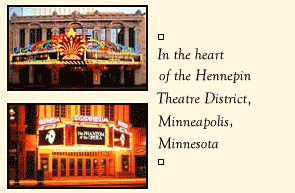
Dungeons And Dragons Video Games: Party-Based ClassicsWhen you step into the world of Dungeons & Dragons video games, you’re not just exploring dungeons—you’re managing a team, shaping stories, and facing choices that echo around every corner. These classics invite you to think strategically, build memorable parties, and experience legendary campaigns rooted in tabletop lore. Whether you prefer tactical combat or branching storylines, you’ll find there’s far more to these games than nostalgia alone—there’s an entire legacy waiting for you to uncover. Evolution of Party-Based Role-Playing GamesThe origins of party-based role-playing games can be traced back to tabletop experiences, particularly Dungeons & Dragons (D&D). As the genre transitioned to the digital landscape, it underwent significant evolution. Early PC RPGs, such as Baldur’s Gate, were heavily influenced by Advanced D&D rules and established foundational gameplay mechanics centered around team dynamics and strategic combat. These titles became seminal examples of the genre, showcasing the importance of party composition and tactical decision-making. Subsequent RPGs in the genre have built upon these foundations, often introducing complex moral choices, expanded character customization, and diverse gameplay mechanics with each new installment. This evolution has contributed to a richer gaming experience, allowing players to engage in various narratives and strategies. The genre continues to develop, with ongoing innovations that shape the future of role-playing games, indicating a sustained interest in party-based systems within the gaming community. Differences Between Classic and Modern D&D Video Game DesignDungeons & Dragons video games have maintained a connection to their tabletop roots, yet notable differences exist between classic and modern design approaches. Classic titles, particularly those rooted in Advanced Dungeons & Dragons, were characterized by their challenging gameplay. Players engaged in carefully planned battles, necessitating strategic team composition and a comprehensive understanding of RPG mechanics. In contrast, modern D&D games, exemplified by recent iterations like Baldur's Gate, have adopted streamlined gameplay mechanics. These adaptations tend to simplify class systems and prioritize an action-oriented experience, thus making the games more accessible to a broader audience. Furthermore, storytelling in contemporary adaptations frequently shifts from open-ended exploration to more linear narrative arcs. As the gaming landscape continues to evolve, the discussion within the community regarding the merits of these differing design philosophies persists. Each approach offers unique advantages and caters to different player preferences, underscoring the complexity of party-based game design moving forward, which merits careful observation. Key Mechanics of Team Strategy and Party DynamicsThe construction of an effective party is a foundational element in classic Dungeons & Dragons video games, as the composition of classes and roles significantly impacts overall effectiveness. In titles derived from Advanced D&D, such as Baldur’s Gate, each member of the party fulfills a crucial function, typically categorized as tank, healer, or spellcaster. The success of the party often hinges on careful recruitment decisions and the management of in-game resources. Turn-based combat systems facilitate strategic planning, allowing players to schedule their actions methodically to achieve optimal outcomes during encounters. As the Dungeons & Dragons series transitioned to a PC platform, player feedback became instrumental in the refinement of party-building mechanics. This iterative development process not only enhanced gameplay but also contributed to the enduring popularity of these classic RPGs within the gaming community. Such mechanisms have had a lasting influence on the evolution of role-playing games, underscoring the importance of thoughtful party dynamics in achieving gaming objectives. Influential Titles in the GenreWhen assessing the landscape of party-based Dungeons & Dragons video games, several titles emerge as particularly significant due to their impact on tactical gameplay and narrative complexity. The Baldur's Gate series, grounded in Advanced Dungeons & Dragons rules, is a notable example; it has played a critical role in shaping both PC gaming and the evolution of the RPG genre. Starting with Pool of Radiance, this title was pivotal in introducing players to a structured role-playing experience, setting a standard for future games. On a different front, Divinity: Original Sin is recognized for its implementation of a rigorous tactical combat system and emphasis on cooperative gameplay, which has influenced subsequent designs. Additionally, games like Darkest Dungeon and Dragon Age: Origins have contributed to the development of party mechanics, each offering unique approaches that have enhanced community engagement with these gameplay elements. Collectively, these titles illustrate the diverse ways in which party-based RPGs have evolved, reflecting broader trends in player interaction and narrative engagement within the genre. Video Game Genres That Echo Old School D&DSeveral video game genres effectively capture the essence of old-school Dungeons & Dragons through their incorporation of key elements such as exploration, strategic combat, and player-driven narratives. Classic computer role-playing games (CRPGs), exemplified by titles like Baldur’s Gate, offer players opportunities to engage in team-based encounters that reflect the mechanics of Advanced Dungeons & Dragons. These games allow for the formation of parties and tactical decision-making that is central to the tabletop experience. Rogue-like games, such as Nethack, emphasize themes of survival and the necessity of making difficult choices, paralleling the early iterations of D&D where player decisions could significantly impact outcomes. These games often feature permadeath mechanics and randomly generated environments, heightening the sense of risk and challenge. Fantasy simulation titles like Kenshi provide a degree of narrative freedom that evokes the open-ended storytelling found in traditional tabletop sessions. Players can approach challenges in various ways, creating unique experiences that resonate with the improvisational nature of D&D gameplay. Massively multiplayer online games (MMOs) introduced a layer of community-driven exploration, allowing players to collaborate and form social bonds in expansive virtual worlds. This aspect mirrors the collaborative storytelling present in tabletop role-playing games. Action RPGs on PC have expanded the genre's boundaries by incorporating real-time combat and dynamic gameplay elements, but they also continue to draw inspiration from foundational titles. The influence of these diverse genres signifies that the legacy of old-school D&D remains relevant in contemporary gaming, shaping player expectations and experiences. Community Recommendations and Hidden GemsDetermining which party-based RPGs effectively encapsulate the essence of classic Dungeons & Dragons involves examining community insights and discussions. These forums often highlight a range of titles, both well-regarded and obscure. For players who are new to the genre or familiar with foundational PC games such as Baldur’s Gate, these discussions can be particularly informative. Solasta: Crown of the Magister is frequently mentioned for its implementation of Advanced Dungeons & Dragons mechanics, offering players substantial team customization that aligns well with traditional tabletop experiences. Meanwhile, Wildermyth distinguishes itself by providing dynamic, narrative-driven gameplay, enhancing the overall strategy through an evolving battle system. Additionally, several indie titles, such as Black Geyser and The Dungeon of Naheulbeuk, have emerged as notable examples within the genre. These games contain intricate decision-making processes and tactical depth, contributing to an experience that resonates with classic RPG elements. Thus, community recommendations serve as a valuable resource for identifying both prominent and hidden gems in the realm of party-based RPGs. Notable Features of Iconic Party-Based RPGsOne significant aspect of party-based RPGs is their emphasis on character management and strategic gameplay. In titles such as Baldur’s Gate and Divinity: Original Sin, players assemble a team of characters, each possessing unique abilities that contribute to both combat and exploration. This complexity introduces a level of challenge that can be seen as both demanding and satisfying, as players must carefully consider their party composition and tactics. Modern PC RPGs often feature dynamic, branching narratives that respond to player choices, allowing for varied outcomes based on decisions made throughout the game. This interactivity enhances engagement and personalization, as players navigate through intricate storylines. Additionally, effective party-based RPGs typically offer expansive worlds to explore, populated with notable characters that add depth to the narrative. The decisions players make can significantly influence both the storyline and the broader gaming community associated with these titles. For newcomers to the genre, it is worth noting that these established games have set benchmarks for subsequent RPG developments, influencing design principles and player expectations. Such classic titles continue to inform the evolution of party-based RPGs, maintaining their relevance within the gaming landscape. ConclusionAs you explore Dungeons & Dragons video games, you’ll find a rich legacy of party-based adventures shaped by strategic choices and compelling stories. Whether you favor timeless classics or newer adaptations, the genre invites you to lead unique teams through memorable settings and challenges. There's constant evolution here, offering both familiar comforts and bold innovations. If you’re seeking engaging camaraderie and deep storytelling, these D&D-inspired RPGs remain some of the most rewarding games you can experience. |

Schedule of Events
Broadway Season Schedule
Get our Schedule via Email

Hours and Locations
How to Purchase Tickets
Purchase Gift Certificates
Seating Charts
Parking and Directions




